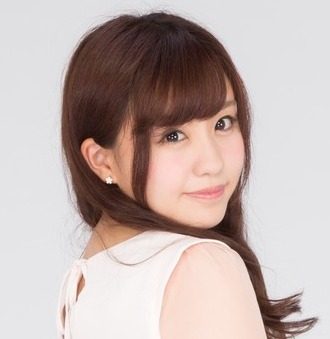“obāchan” vs. “sobo“:They Means “grand mother” But…
What is the difference between “おばあちゃん(obāchan) and 祖母(sobo)”? Which is used as casual? After reading this, you would be answering this question. Let me introduce what their subtle differences are and how you correctly use them such as native speakers today!
おばあちゃん (obāchan)
Grandma, Granny / 奶奶 / 할머니 / Bà
“おばあちゃん(obāchan)” means “Grandma or Granny” and which has been used as the meaning of “one’s grandmother used informally”. The basic ways to use it are that “私のおばあちゃんは___。(My grandma/granny ___.)”, etc For instance, “私のおばあちゃんは車を買う。(My grandma/granny buys a car.)”, “私のおばあちゃんは本を読むのが好きだ。(My grandma/granny like to read books.)”, “私のおばあちゃんはこの人です。(My grandma/granny is this person.)”, etc. The tips for using it are that “おばあちゃん” is used as “CASUAL”, unlike “祖母“. Everyone could use “おばあちゃん” as casual, polite such as “おばあちゃんは本を読むのが好きだよ。(My grandma/granny like to read books.)” as casual and “おばあちゃんは本を読むのが好きです。(My grandma/granny like to read books.)” as polite and formal. Additionally, “おじいちゃん” is “grandpa or grandad” as casual like “おばあちゃん” which you could use as polite as well.
\ Learn Japanese language online with a personal native teacher!/
Sample
おばあちゃんは70歳だよ。 (My granny is 70 years old.) (奶奶已经70岁了。) (할머니는 70살이야.) (Bà tôi đã 70 tuổi rồi đó.) (obāchan wa dayo.)


昨日、おばあちゃんと買い物に行きました。 (I went shopping with my grandma yesterday.) (我昨天和奶奶一起去购物了。) (어제 할머니와 쇼핑을 갔습니다.) (Hôm qua, tôi đã đi mua sắm với bà tôi.) (kinō, obāchan to kaimono ni iki mashita.)


来月、おばあちゃんと旅行に行きます。 (I’m going to travel with my grandma next month.) (我和奶奶下个月要去旅行。) (다음 달에 할머니와 여행을 갑니다.) (Tháng tới, tôi sẽ đi du lịch với bà tôi.) (raigetsu, obāchan to ryokō ni ikimasu.)


おじいちゃんの誕生日プレゼントを買ったよ。 (I bought a birthday present for my granpa.) (我买了送给爷爷的生日礼物。) (할아버지의 생신 선물을 샀어.) (Tôi đã mua một món quà mừng sinh nhật của ông tôi.) (ojīchan no tanjōbi purezento wo katta yo.)
祖母 (sobo)
Grandmother / 祖母 / 할머니 / Bà
“祖母(sobo)” means “Grandmother” and which has been used as the meaning of “the mother of a person’s father or mother used formally”. The basic ways to use it are that “私の祖母は___。(My grandmother ___.)”, etc For instance, “私の祖母は車を買う。(My grandmother buys a car.)”, “私の祖母は本を読むのが好きだ。(My grandmother like to read books.)”, “私の祖母はこの人です。(My grandmother is this person.)”, etc. The tips for using it are that “祖母” is used as “FORMAL”, unlike “おばあちゃん”. Everyone could use “祖母” as casual, polite such as “祖母は本を読むのが好きだよ。(My grandmother like to read books.)” as casual and “祖母は本を読むのが好きです。(My grandmother like to read books.)” as polite and formal. Additionally, “祖父” is “grandfather” as polite or formal like “祖母“.
Sample


祖母は70歳です。 (My grandmother is 70 years old.) (我的祖母今年70岁。) (할머니는 70세입니다.) (Bà tôi đã 70 tuổi.) (sobo wa nana jussai desu.)


昨日、祖母と買い物に行きました。 (I went shopping with my grandmother yesterday.) (我昨天和祖母一起去购物了。) (어제 할머니와 쇼핑을 하러 갔습니다.) (Hôm qua, tôi đã đi mua sắm với bà tôi.) (kinō, sobo to kaimono ni iki mashita.)


来月、祖母と旅行に行きます。 (I’m going to travel with my grandmother next month.) (我和祖母下个月要去旅行。) (다음 달에 할머니와 여행을 갑니다.) (Tháng tới, tôi sẽ đi du lịch với bà tôi.) (raigetsu, sobo to ryokō ni iki masu.)


祖父の誕生日プレゼントを買いました。 (I bought a birthday present for my grandfather.) (我买了送给祖父的生日礼物。) (할아버지의 생신 선물을 샀습니다.) (Tôi đã mua một món quà mừng sinh nhật của ông tôi.) (sofu no tanjōbi purezento wo kaimashita.)
\ Learn more! /









Comments